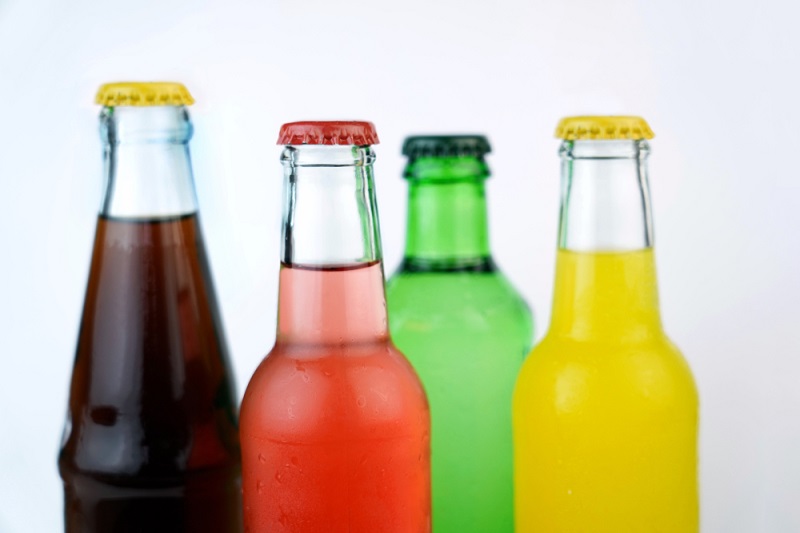Drinking Sugary Beverages Linked with Early Death

Soda and other sugary beverages aren't exactly known for being healthy. But now, a new study finds that sugar-sweetened beverages are tied to an increased risk of early death.
In the study, published today (March 18) in the journal Circulation, researchers analyzed information from more than 80,000 women and 37,000 men in the health profession who were followed for about three decades. Participants filled out surveys about their diet every four years, and also answered questions about their lifestyle and overall health every two years.
The more sugary beverages people drank — including soft drinks, fruit drinks, energy drinks and sports drinks — the greater their risk of death was during the study period.
For example, those who drank two to six sugar-sweetened beverages (SSBs) per week were 6 percent more likely to die during the study period, compared with those who drank less than one SSB per month. Those who drank one to two SSBs per day were 14 percent more likely to die during the study period compared with those who drank less than one SSB per month. [11 Ways Processed Food Is Different from Real Food]
The findings held even after the researchers took into account factors that could affect people's risk of premature death and disease, such as smoking, alcohol use, physical activity, and consumption of fruits, vegetables and red meat.
"Our results provide further support to limit intake of SSBs and to replace them with other beverages, preferably water, to improve overall health and longevity," study lead author Vasanti Malik, a research scientist at the Harvard T.H. Chan School of Public Health's Department of Nutrition, said in a statement.
It's important to note that the study found only an association and cannot prove that drinking soda or other sugary drinks causes early death.
Get the world’s most fascinating discoveries delivered straight to your inbox.
Added sugar
Sugar-sweetened beverages are the largest source of added sugar in the U.S. diet. While SSB consumption had been dropping in the U.S. over the past decade, in recent years, there's been an increase in consumption among U.S. adults. Consumption of SSBs is also rising in developing countries.
Previous studies have linked SSB intake with weight gain and an increased risk of type 2 diabetes, heart disease and stroke. However, few studies have examined the link between SSB consumption and early death, the researchers said.
In the new study, SSB consumption was particularly strongly linked with an increased risk of death from heart disease. Those who consumed two or more SSBs per day had a 31-percent higher risk of early death from heart disease, compared with those who consumed SSBs infrequently.
"These findings are consistent with the known adverse effects of high sugar intake on metabolic risk factors; and the strong evidence that drinking sugar-sweetened beverages increases the risk of type 2 diabetes, itself a major risk factor for premature death," said study co-author Dr. Walter Willett, professor of epidemiology and nutrition at the same institution.
But what about diet drinks? For the most part, diet drinks — which are sweetened with sugar substitutes — were not linked with an increased risk of death during the study period. Indeed, the study found that replacing one SSB per day with a diet drink was actually tied to a reduced risk of early death.
However, consuming very high levels of diet drinks — four or more servings per day — was linked with an increased risk of early death among women. This finding may have been due to so-called "reverse causation," that is, when people with known heart disease risks (such as high blood pressure and obesity) switch from SSBs to diet drinks. In other words, the people may have switched to diet drinks because of their existing health conditions. But further studies are needed to better examine the link between diet beverage consumption — particularly at high levels — and heart disease, the researchers said.
In a statement regarding the study, the American Beverage Association (ABA) said that it considers soft drinks "safe to consume as part of a balanced diet," and that the sugar used in the beverages is the same as sugar used in other food products. "We don't think anyone should overconsume sugar, that's why we're working to reduce the sugar people consume from beverages across the country," the statement said.
Editor's note: This article was updated on March 19 to include a statement from the ABA.
- 7 Tips for Moving Toward a More Plant-Based Diet
- 9 Disgusting Things That the FDA Allows in Your Food
- 9 New Ways to Keep Your Heart Healthy
Originally published on Live Science.

Rachael is a Live Science contributor, and was a former channel editor and senior writer for Live Science between 2010 and 2022. She has a master's degree in journalism from New York University's Science, Health and Environmental Reporting Program. She also holds a B.S. in molecular biology and an M.S. in biology from the University of California, San Diego. Her work has appeared in Scienceline, The Washington Post and Scientific American.
 Live Science Plus
Live Science Plus





